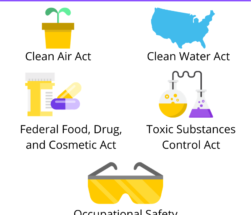The General Data Protection Regulation (GDPR) is a comprehensive set of data protection guidelines that came into effect in May 2018. It applies to all organizations operating within the European Union (EU) and imposes strict rules for the collection, storage, and processing of personal data. In this article, we will explore the key aspects of GDPR and why it is crucial for businesses operating in the tech industry to comply with these regulations.
Understanding GDPR
GDPR was introduced to give individuals more control over their personal data and to enhance the protection of their privacy. It sets out principles and provisions that govern how organizations should handle personal data, placing obligations on data controllers and processors to ensure transparency, fairness, and accountability in data processing activities.
Key Concepts and Principles
GDPR introduces several key concepts and principles that businesses need to follow:
Data Subject
A data subject refers to an individual whose personal data is being collected, stored, or processed. It can be a customer, an employee, or any other individual whose data is being handled by an organization.
Data Controller
A data controller is the entity responsible for determining the purposes, conditions, and means of processing personal data. They have the primary responsibility for ensuring compliance with GDPR regulations.
Data Processor
A data processor is an entity that processes personal data on behalf of the data controller. They act under the authority of the data controller and must only process data based on the controller’s instructions.
Lawful Basis for Processing
Under GDPR, organizations must have a lawful basis for processing personal data. This can include consent, contract necessity, legal obligation, vital interests, public task, or legitimate interests.
Data Protection Principles
GDPR sets out several principles that organizations must abide by when processing personal data. These include lawful, fair, and transparent processing; purpose limitation; data minimization; accuracy; storage limitation; integrity and confidentiality; and accountability.
Individual Rights
GDPR grants individuals specific rights regarding how their personal data is processed, including the right to access, rectification, erasure (the right to be forgotten), restriction of processing, data portability, and the right to object.
Importance for the Tech Industry
In today’s digital age, the tech industry is heavily reliant on personal data to provide innovative products and services. However, with great power comes great responsibility. GDPR plays a crucial role in guiding tech companies on how to manage personal data to protect user privacy.
Failure to comply with GDPR can result in severe consequences, including hefty fines of up to 4% of a company’s global annual turnover or €20 million, whichever is higher. Such penalties can significantly impact a tech business’s reputation and financial stability.
Steps to Ensure GDPR Compliance
To ensure compliance with GDPR, tech companies should take the following steps:
1. Develop a Data Protection Policy
The first step is to create a comprehensive data protection policy that outlines how personal data will be collected, stored, processed, and protected. This policy should also define the roles and responsibilities of different individuals within the organization.
2. Implement Consent Mechanisms
Obtaining valid consent is essential under GDPR. Tech companies should implement clear and affirmative consent mechanisms when collecting personal data from individuals. The consent must be freely given, specific, informed, and unambiguous.
3. Secure Data Transmission and Storage
Tech businesses need to ensure that personal data is transmitted and stored securely. This involves using encryption, password protection, firewalls, and other security measures to prevent unauthorized access or breaches.
4. Perform Regular Data Protection Impact Assessments
Conducting ongoing data protection impact assessments helps identify and address potential risks and vulnerabilities in data processing activities. It allows businesses to take proactive steps to mitigate risks and ensure compliance.
5. Educate Employees
All employees should receive proper training on data protection and GDPR compliance. This includes understanding the rights of data subjects, the importance of secure data handling, and how to respond to data breaches or subject access requests.
Conclusion
GDPR and data protection guidelines are of utmost importance in the tech industry. By adhering to these regulations, businesses can enhance their credibility, build trust with customers, and avoid the severe consequences of non-compliance. Tech companies must prioritize implementing robust data protection measures and continuously stay updated with evolving GDPR requirements to safeguard personal data and respect the privacy of individuals.









